One Candidate For One Seat; Raisi Vs Raisi
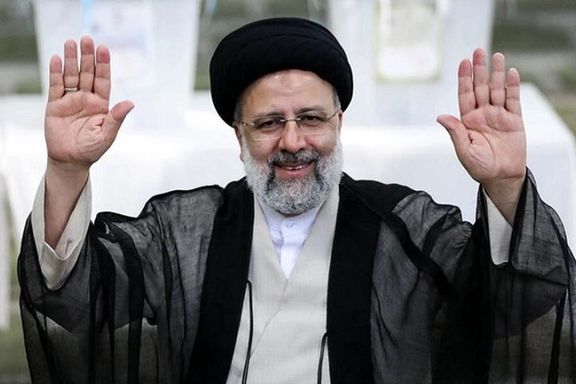
The Guardian Council has barred all candidates from running in the upcoming Assembly of Experts election in Iran’s South Khorasan province except President Ebrahim Raisi.

The Guardian Council has barred all candidates from running in the upcoming Assembly of Experts election in Iran’s South Khorasan province except President Ebrahim Raisi.
Moussa Salimi, the secretary of the election office in South Khorasan, announced Friday that of the five people that had registered to run in the election, one withdrew and three others were disqualified by the Guardian Council.
The decision leaves Raisi as the only remaining candidate in the province who can be voted for. The Guardian Council has followed a similar policy with regard to the Assembly of Experts election in other provinces as well.
In Kohgiluyeh and Boyer-Ahmad province, only one candidate is allowed to run; in Qazvin, three seats are available for the assembly and only three candidates have been approved; in Gilan and Mazandaran, five candidates will compete for the four seats of the assembly; and in Eastern Azerbaijan, the Guardian Council has approved only six candidates while there are five seats.
The announcement came two days after Iran’s former president Hassan Rouhani, once considered to be one of the candidates for succeeding Supreme Leader Ali Khamenei, was barred from running for re-election at the Assembly of Experts that is tasked with electing the next leader.
Iran International TV analyst Mehdi Mahdavi Azad argued that the Iranian people are indifferent to Rouhani's disqualification after his disappointing allegiance with Khamenei and his supporters.
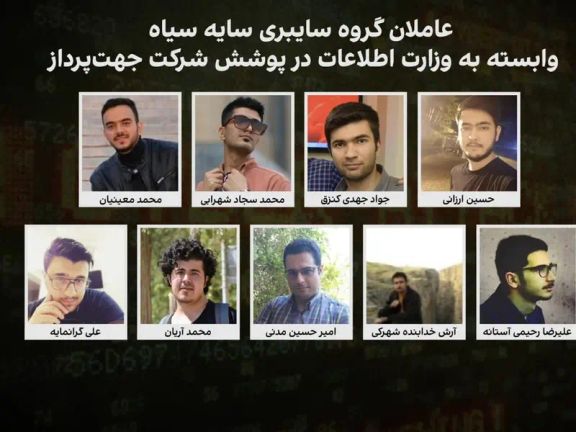
Iran International can reveal that the Islamic Republic’s Intelligence Ministry conducts cyberattacks against Israeli civilian targets via a cover tech company.
The cyber group “Black Shadow” (“Saye-ye Siah” in Persian), which targeted Ziv Medical Center in the northern Israeli city of Safed in November is in fact a tech company which works under the registered name of “Raahkarha-ye Fanavari-e Etela’at-e Jahatpardaz.”
According to Iran International’s investigative journalist Mojtaba Pourmohsen, the two operational offices of the “Black Shadow” cyber group are located in Tehran.
The website of the company states that a group of “faithful and committed youth” has launched it in line with “The Second Step of the Revolution.”
The Second Step of the Revolution was a statement issued by Ali Khamenei, Iran’s Supreme Leader, in 2019, on the 40th anniversary of the Islamic revolution. It provides “instructions” on how to progress the revolution and its ideas.
The company has not yet responded to Iran International’s request for comment.
Israel’ National Cyber Directorate announced on December 18 that the Islamic Republic and its proxy group Hezbollah were behind the cyberattack on Ziv Medical Center.
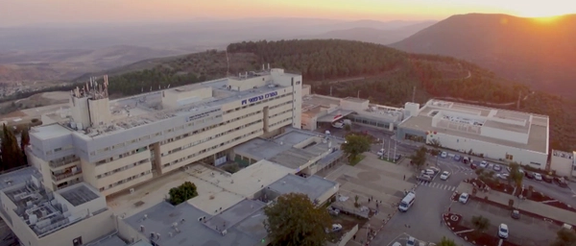
“The attack was stopped at an early stage, thereby preventing the attempt by Iran and Hezbollah to harm the functioning of the hospital and the potential for humanitarian harm to civilians,” read a statement by the directorate, further admitting that “the attackers managed to take materials from the hospital and started posting them on social networks.”
According to Iran International’s report, Iran-backed “Black Shadow” also targeted Israel’s tech sector and higher education facilities for 10 months in 2022 to pave the way for the Ministry of Intelligence to steal identity information and sensitive data in a cyberattack.
The group used Wiper malware to erase their tracks in the operation, the report added.
“Black Shadow” is also known by such other names as “AGRIUS” and “Pink Sandstorm.”
Earlier in November, Microsoft’s Threat Analysis Center (MTAC) reported that Iran has intensified its cyberattacks and influence operations since 2020, targeting Israel and other countries. The report also warned that Iran, Russia and China are likely to plan to influence the upcoming elections in the United States and other countries in 2024.
In December, Iran-linked hackers targeted a water facility in the rural area of County Mayo in Ireland, leaving the residents without water for two days. The attack was carried out by pro-Iran Cyber Av3ngers group which claimed that the facility was attacked because it used an Israeli-made piece of equipment.
Last week, Assistant Commissioner Matt Jukes, the UK’s head of counter-terrorism policing, announced that a new unit was established in the British police to deal with threats posed by the Islamic Republic of Iran, Russia and China ahead of the UK’s general election.
The unprecedented volumes of online misinformation have raised concerns among the British security officials ahead of the election. Just last year, Britain’s Home Secretary called Iran the country’s number one threat, with the head of MI5 revealing multiple plots foiled on UK soil since 2022.
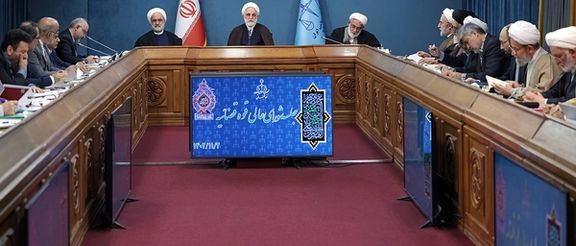
The Iranian parliament approved a budget allocation of 980 trillion rials for the judiciary and its affiliated organizations amidst human rights abuses and crackdowns.
The allocation, amounting to roughly $1.8 billion, is intended to bolster the functioning of the judicial system, currently facing scrutiny for human rights violations and the issuance of death sentences, prompting widespread international condemnation.
The decision comes while only 35 trillion rials, equivalent to around $85 million, was designated for conserving and protecting natural resources.
The total government budget will reach 24,290 billion rials ($49.2 billion) next year, which shows an increase of 16.7 percent compared to this year’s budget.
Despite assertions from the government regarding a balanced budget, concerns over deficits persist. Estimates from various sources, including the Iran Chamber of Commerce, Industries, Mines and Agriculture, suggest a significant deficit, with figures ranging from 4.5 quadrillion rials (approximately $9 billion) to as high as $22 billion, according to a report by the parliament's research center cited by economic website EcoIran.
Iran's economy continues to grapple with challenges, exacerbated by the United States' withdrawal from the Joint Comprehensive Plan of Action (JCPOA) nuclear accord in 2018 and subsequent sanctions. However, underlying economic issues predate the geopolitical developments, with mismanagement of oil revenues since the 1990s contributing to the current economic strain. Despite generating substantial oil revenues estimated at around $1.5 trillion over the past two decades, Iran faces economic difficulties, with the government controlling a significant portion of the economy.
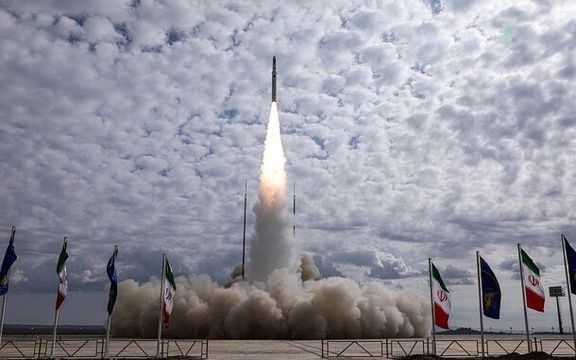
In a joint statement released on Friday, France, Germany, and the United Kingdom voiced their condemnation of Iran's recent launch of the Soraya satellite.
Launched with the aid of the Ghaem-100 Space Launch Vehicle (SLV), the deployment has raised concerns among the three European nations regarding the potential advancement of Iran's long-range ballistic missile capabilities.
The statement expressed apprehension over the technology employed in the SLV, which could potentially enable Tehran to launch weapons over extended distances.
"We remain committed to taking every diplomatic step to prevent Iran from developing nuclear weapons and to hold Iran to account for its destabilizing activity in the region and internationally," the statement said.
The Soraya satellite, developed by the Iranian Space Research Center, was sent into a 750 km Low Earth orbit on January 20th. The launch was overseen by the aerospace division of the Islamic Revolutionary Guard Corps (IRGC), a branch of the Iranian military.
Iran has defended the satellite launch, with the IRGC claiming that it will serve both scientific and defense purposes, enhancing Iran's capabilities in space exploration and technology. However, the launch has faced criticism from the United States and other Western nations.
Accusations have been leveled against Iran saying that its satellite and rocket programs are veiled attempts to advance ballistic missile technology capable of carrying nuclear payloads. The US has imposed sanctions targeting Iran's aerospace sector, citing violations of a UN Security Council resolution urging Iran to refrain from ballistic missile-related activities.
Since 2018, Iran has been subject to severe US sanctions following the US withdrawal from the 2015 nuclear agreement, which aimed to limit Iran's nuclear activities in exchange for sanctions relief. Iran has since reduced its compliance with the agreement, resuming uranium enrichment at higher levels.
It has since been placed under further sanctions following the provision of drones to Russia in its war on Ukraine and the regime's brutal crackdowns on protesters since 2022's uprising.
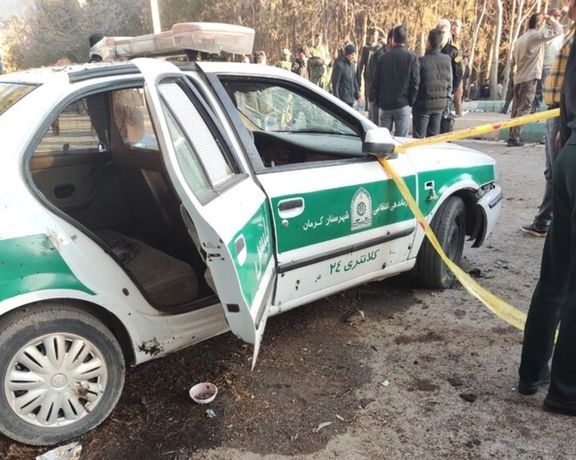
Fars news agency, affiliated with the IRGC, dismissed reports claiming Washington warned Tehran prior to recent bombings by ISIS in Iran.
The Wall Street Journal reported on Thursday that the US had warned the Islamic Republic of the impending bombings which claimed the lives of 95 people in Kerman earlier this month.
There are “compelling reasons” which demonstrate that such claims, made by the Wall Street Journal and repeated by American and British media, counter “the facts on the ground,” Fars wrote on Saturday.
On Friday, IRNA, the Iranian state news agency, also rejected the reports of Washington’s terror warning to Tehran.
Even the White House officials, including Deputy US State Department Spokesperson Vedant Patel, have refused to confirm the Wall Street Journal’s report, Fars added.
The Fars website further reiterated the usual rhetoric of the Islamic Republic, accusing the US of establishing ISIS and supporting “terrorist and subversive groups” in Iran.
Islamic State’s affiliate in Afghanistan, ISIS-Khorasan, known as ISIS-K, committed the attacks at the commemoration ceremony of slain Qods Force commander Qassem Soleimani.
Separately, Iran International has learned that the US passed the warning to Iran more than one week before the attack.
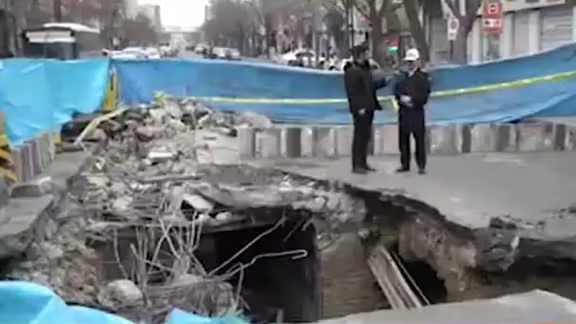
An area of about 200 square meters collapsed on Friday morning in one of the major streets in Iran’s capital city Tehran.
Officials have attributed the incident to land subsidence.
According to reports, the incident took place at the beginning of Kargar Street on the northern side of Qazvin Square in central Tehran.
As the asphalt of the floor of the street collapsed, the remains of an old public bathroom and toilet were found. No information has been released yet regarding the age and history of the discoveries.
The incident resulted in the closure of the street and the disconnection of water and electricity in the area for several hours.
Over the past years, land subsidence has turned into a serious crisis in various parts of Iran.
Experts warn that the current land subsidence situation in Iran puts the lives of more than 39 million people at risk.
Several factors have caused the situation to reach breaking point, including dam construction, climate change, inefficient water consumption by agriculture and industries, and the use of underground aquifers as sources for illegal agricultural water extraction wells.
In March 2023, Ali Beitollahi, heading the disaster task force on the issue at the Road, Housing and Urban Development Research Center of Iran, said the approximate area of subsidence zones in the country has reached 18.5 million hectares, almost 11% of Iran’s total area.
Back in August, Iran International obtained documents revealing that the Islamic Republic officials were aware of dangerous land subsidence but were unwilling to share it with the public.
According to a leaked confidential letter from Iran’s National Cartographic Center, about 550 square kilometers of land in and around Tehran (about the size of the UK city of Manchester or the US city of El Paso, Texas) is sinking an average of over 13 centimeters (about 5.12 inch) per year.